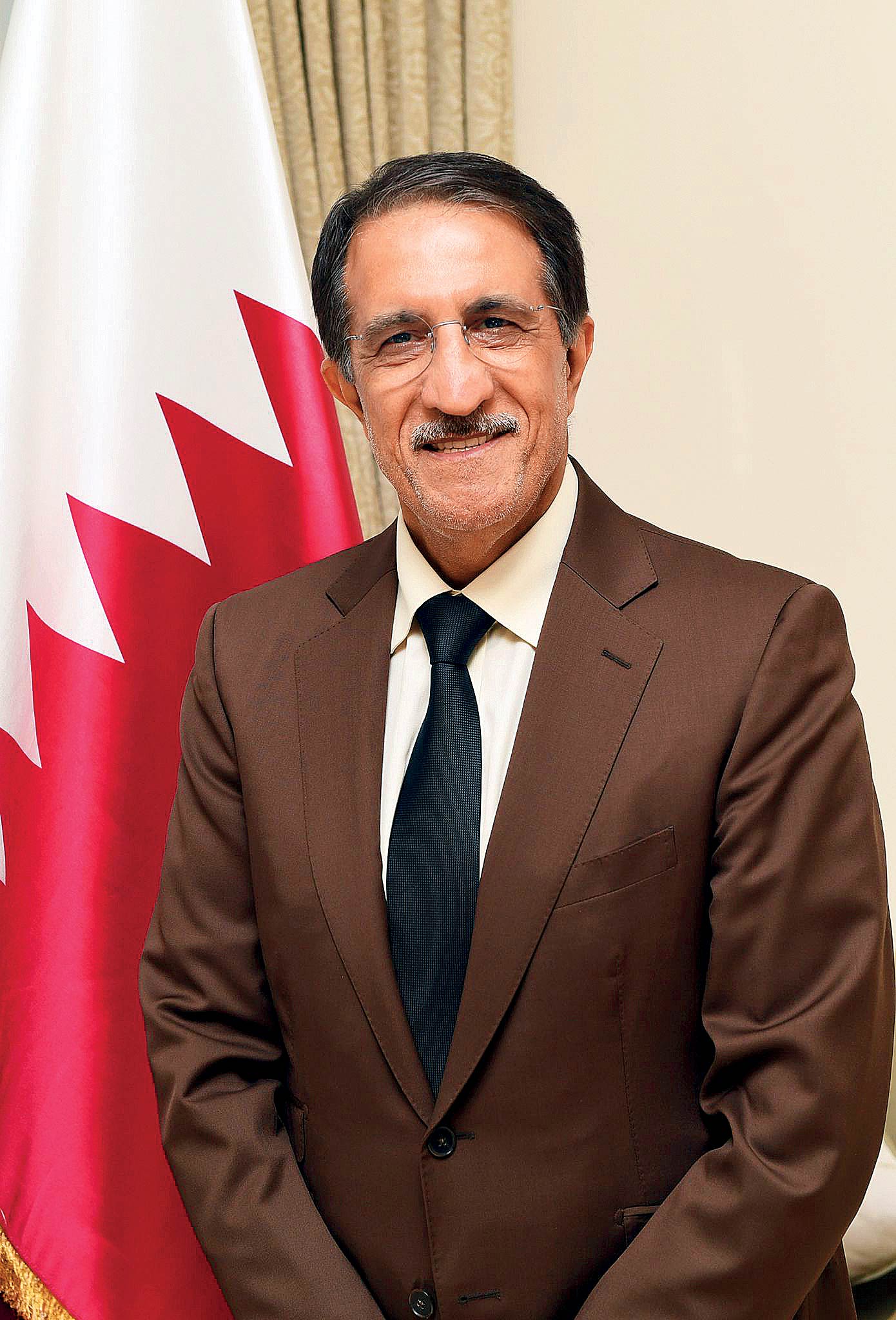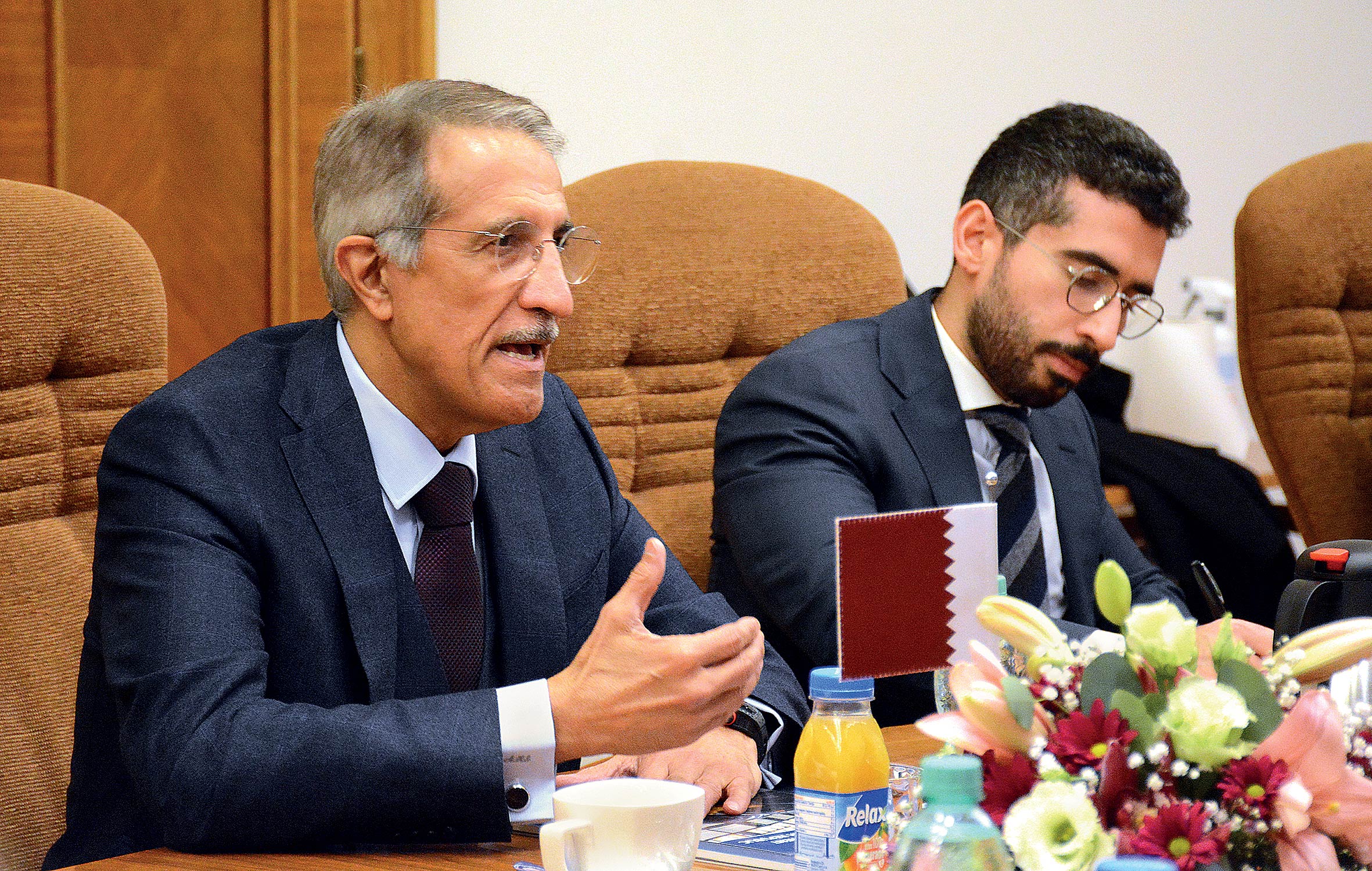Qatar-Czech relations have been developing positively for many years. We discussed the opportunities that this can bring to Czech and Qatari business with non-resident Ambassador of the State of Qatar to the Czech Republic, H.E., Sheikh Abdulla bin Mohammed bin Saud Al Thani.
The Czech Embassy in Doha and the Qatari Embassy in Prague are to open in the coming months, marking a big step in our mutual relations. What does it mean specifically?
The opening of embassies in our two friendly countries represents a momentous step towards nurturing bilateral relations. It reflects the desire of both countries to strengthen cooperation and develop relationships at various levels of politics, economy, investment, and culture. The mutual decision to open the embassies marks the culmination of our diplomatic efforts that have persisted for over five decades.
Czechia could draw inspiration from the collaboration between Qatar and Germany. In 2018, Qatar announced its plan to invest a total of 10 billion euros in Germany in the next five years. Our country is certainly smaller, offering far less potential, but in spite of that – do you feel that it has something to offer to Qatar that Germany and other European countries do not?
Bilateral relations between Qatar and Czechia have developed significantly since 2017. The first Qatar Airways route between Doha and Prague opened in August 2017, with a second direct line averaging two flights a day following that same year in December. On top of that, the airline now operates three cargo flights per week on the same route. Qatar Airways flights have helped grow Czech and Qatari tourist trade and improve direct communication between the two countries. It is the aforementioned tourist trade, as well as healthcare, real estate, and agriculture in Czechia that represent enticing opportunities for further developing our collaboration.
Are you planning any specific events to better present the possible trade and investment opportunities in our two countries to Czech and Qatari businessmen?
Stabilizing economic and investment relations between our two countries is my priority. Conferences present an excellent opportunity to develop and nurture these relations. After all, direct meetings between Czech and Qatari investors and entrepreneurs have led to bolstering mutual trade, which has grown by 82% between 2015 and 2020. I believe that the Czech-GCC Investment Forum 2022, set to take place in May, will sow the proverbial seed and allow more such conferences to take place in the future.
Qatar’s economy relies predominantly on the extraction and processing of natural gas and oil. Especially in recent years, however, your country has been trying to reduce its dependence on these sectors by diversifying its economy. How exactly is Qatar approaching this diversification?
We have developed a new strategy for increasing the performance of the non-petroleum sectors of our economy and accelerating economic growth in alignment with the Qatar National Vision 2030. It is important to note that, according to this national vision, achieving economic diversification and reducing dependence on oil and gas does not mean neglecting these two sources. Rather, our aim is to achieve economic growth unaffected by oil and natural gas price fluctuations while creating a stable investment environment in our national economy’s priority sectors. We are striving for a system of legislation and administration that will attract more foreign capital – companies from abroad can trade locally in any currency, have full proprietary ownership of individual businesses, avail themselves of return profits, tax breaks, and other such incentives.
Qatar has also increased its expenditures on building up infrastructure for the purpose of supporting the economy’s competitive advantage. The state has implemented massive projects, such as the Hamad International Port – one of the most important and largest of its kind in the Middle East – as well as the Hamad International Airport, the Doha Metro project, miles of railways and motorways, and free economic zones to encourage logistics and industrial growth. Due to its overall competitiveness, the State of Qatar has managed to reach the second rank in the Middle East and third in the world in economic growth in record time. As far as the prominent Global Entrepreneurship Index is concerned, we even rank first in the Middle East region. To sum it all up, the Qatari economy has seen significant growth in sectors not related to oil; their market share has increased from 52% in 2018 to roughly 66% in 2020. Marking a growth of about 14% in a span of three years.
Which areas of the Czech economy might attract Qatari capital in terms of investment? And vice versa, which parts of the Qatari economy might be interesting for Czech investors?
Czechia is considered an important industrial economy – Qatari investors might be interested in information and communication technologies, software and nanotechnology development, as well as heavy industry, mechanical engineering, and the chemical and pharmaceutical industries. Conversely, Qatar can offer a safe and stable investment environment, its strategic geographical location, and a developed infrastructure to Czech businesses, who can establish their branches locally hassle-free, allowing them to reach hundreds of millions of customers throughout Qatar, the Middle East, and Southeast Asia.
The brunt of Czech goods exported to Qatar is constituted by machinery, vehicles, and industrial components. What other Czech products might catch on in Qatari markets?
I see an opening for environmental technologies while including Czech businesses in bilateral projects concerning nanotechnologies, microchips, and the pharmaceutical and chemical industries also presents an option.

Qatar National Vision 2030
Often abbreviated as QNV2030, it is a development plan of the State of Qatar, launched in 2008. QNV2030 aims to transform Qatar into an advanced society capable of achieving sustainable development by 2030. The plan’s development goals are divided into four central pillars: the economy, social affairs, human resources, and environmental development.
GCC
The Gulf Cooperation Council, officially The Cooperation Council for the Arab States of the Gulf, is a political and economic union consisting of six Arab states with access to the Persian Gulf: Kuwait, Saudi Arabia, Qatar, United Arab Emirates, Bahrain, and Oman. The Council was established on May 25, 1981, and is headquartered in Riyadh, the capital of Saudi Arabia.

H. E. Ambassador Sheikh Abdulla bin Mohammed bin Saud Al Thani (left) visited Czechia in the beginning of February.